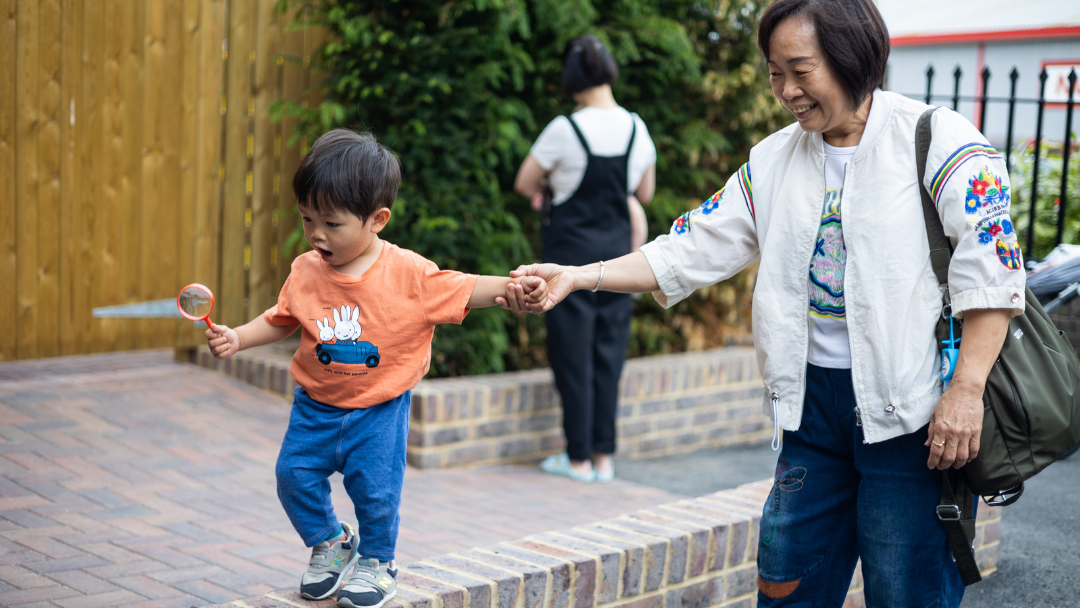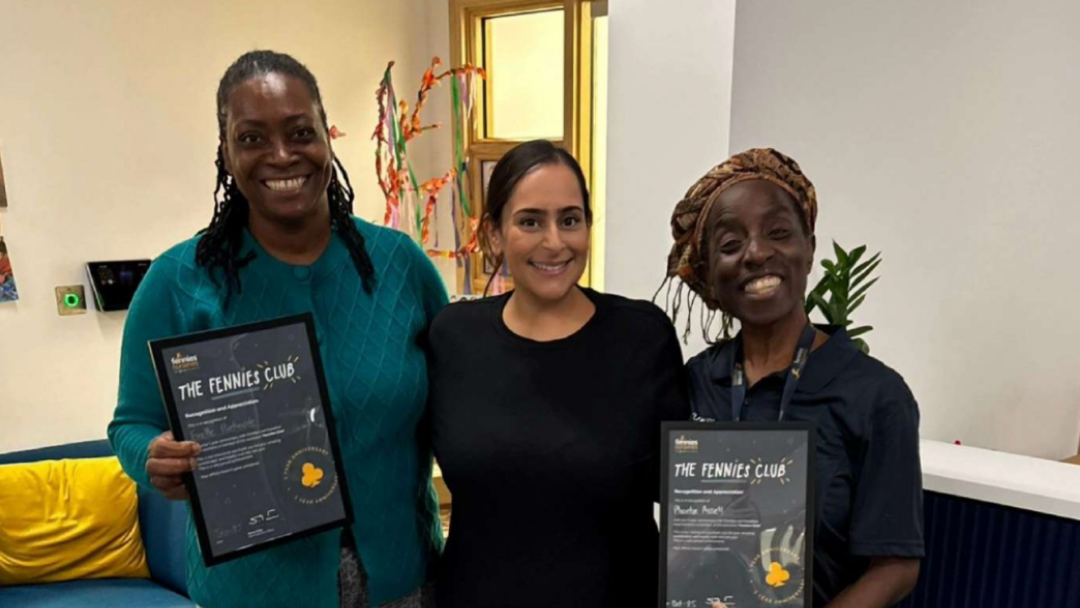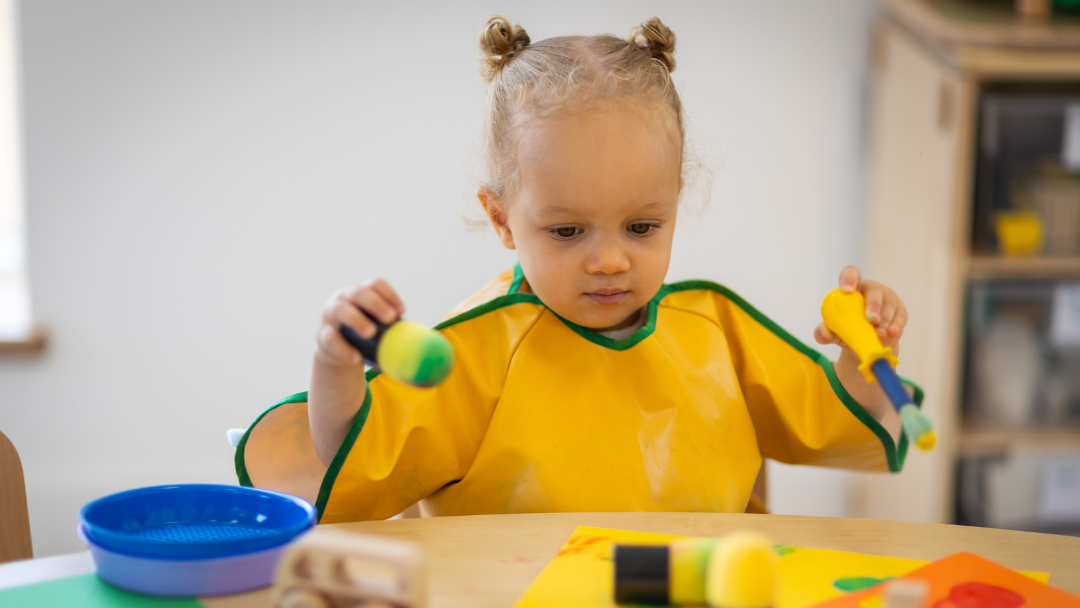Our Head of Recruitment Caroline Horsley explores the important role of an early years practitioner at a day nursery or pre school.
Practitioners are at the heart of every single nursery and their job expands much further than caring for children. As a nursery nurse, you must have teamwork skills, be able to build partnerships with parents and have an excellent understanding of the EYFS (Early Years Foundation Stage) and childhood development.
In recent times, the resilience of nursery practitioners has been celebrated as the country showed an appreciation for the key workers who kept going during a global pandemic. But despite this, I regularly get asked about the role and responsibilities of a nursery practitioner actually involve, especially from those starting out in childcare or aspiring Apprentices.
What is a Nursery Practitioner?
In short, a nursery practitioner (or nursery nurse) is someone who supports children under the age of 5 through their learning journey by nurturing each developmental stage. But a nursery practitioner is so much more than that.
The first five years of life is when the most cognitive development happens and therefore an early years practitioner, alongside parents, is responsible for role modelling crucial skills that lay the groundwork for creating positive habits that will be used throughout the rest of a child's life.
What does a nursery practitioner do?
When working as a nursery practitioner and being part of a child's early years, you can guarantee that every day will be wonderfully different.
Although you'll be following children's ever-changing interests and creating a variety of learning activities (or provocations) here's a few of the responsibilities you can expect to take on when working in a day nursery.

7:00 am- This is around the time the nursery will be set up ready for the day. You will be required to make sure that breakfast is ready to go and all activities are prepared for the day ahead.
8:00 am- Around this time, most children will begin to arrive. This will be a great opportunity for you to catch up with parents and settle each child into the day. Not forgetting the best part of every morning... Breakfast!
9:00 am-11:30 am- Now fuelled by breakfast, you'll be responsible for channelling children's energy into some exciting learning activities. You'll work with your team to carry these out and complete any health and safety checks or risk assessments.

11:30 am- Lunch is served! You will set tables, adhere to children's dietary requirements and sometimes even encourage them to try new foods. Depending on the age group you're working with your responsibilities will vary, for example, pre school children often self serve whereas under 2's will, of course, require more help when feeding.
12:30 pm- All that eating is sleepy work so around 12:30 am the younger children will take a nap. You will set up naptime, this can include creating a calming environment by playing music and turning on sensory lighting, laying out sleep mats or reading a quiet story.
During naptime, practitioners carry out sleep checks but will also often use this time to prepare afternoon activities, complete observations and update parent apps with their child's daily adventures.
1:30 pm onwards- The afternoon will be filled with more exciting activities and as a nursery practitioner you'll be able to keep children engaged and excited for learning.

6:00 pm- Collection time is an opportunity to catch up with parents and share what the children have been up to. Building a bond with families at the nursery is an incredibly important part of the job and creating a nurturing learning environment.
What are the skills you need for the job?
Organisation
As a nursery practitioner you're responsible for the health and safety of all young children in your care, therefore being organised is extremely important. This will help you prepare exciting learning activities, safe group activities or outings and provide a safe environment by being aware of any necessary risk assessments.
You'll also be responsible for your key child's care diary, monitoring their sleep, being aware of any dietary requirements they may have, as well as any special educational needs you'll need to take into consideration.
Imagination and Creativity
A nursery practitioner is someone who sparks awe and inspiration every single day by creating exciting new learning opportunities. Whether it be making colourful messy play masterpieces, enhancing storytime with props and puppets or an animal tuff tray activity following a child's weekend visit to the farm. A good nursery nurse must be able to use their imagination to help engage children's early years learning in a fun way throughout the day.

Positive Attitude
Anyone who's spent any amount of time around a young child will know that children can easily pick up on how you're feeling, this is why a positive attitude is essential when working with children. Because children thrive when they feel happy, something as simple as a smile on your face can contribute to creating a welcoming and nurturing environment as well as supporting their emotional well-being.
Not only does a positive attitude come in helpful around children but it's a great thing to have when working within a nursery team. Nurseries are a fast-paced environment and practitioners often have to think on their feet or adapt quickly to a situation, a positive attitude will give you a boost in any of these situations to keep up morale and support each other.
Dedication
As rewarding as working with children is, it also requires a lot of dedication to the role. Keeping young children engaged throughout a whole day, interacting with parents and supporting your team requires a love for the early years and a passion for the role is essential. Being a good practitioner will also involve keeping up to date with the latest government guidelines in childcare and industry best practices.
Communication
The way you interact and communicate with young children can make all the difference to their education, after all, it can take propel a good learning activity to a great one! These daily interactions of asking questions, narrating and even singing help build bonds as well as allow them to develop their own speaking and listening skills.
Communication skills will also come in handy with parents as building strong bonds with children's families is a huge part of creating a welcoming nursery environment. This relationship will help you understand their individual needs, the child's interests and provide support for parents.

What are the qualifications needed to become a nursery practitioner?
To become an early years practitioner at a day nursery or pre school, you'll need to achieve at least a Level 3 in a recognised childcare qualification and have GCSE’s in Maths and English at A* to C grades, (or equivalent). You can gain these qualifications through a Level 3 Early Years Educator qualification, if you do not have GCSE’s you will be supported to gain Functional Skills at the required levels. These courses will ensure you're equipped with the right skills and knowledge to work with children, such as:
- How to best support children's early years education and development
- Understanding health and safety guidelines for children, staff members and parents
- Carrying out observations and assessments of the children within the day nursery
- How to provide care and support learning whilst considering each child's unique needs
- How to prepare children for school
However, you can work in a nursery without being qualified as many settings offer Apprenticeship programs to help you achieve level 2 and 3 qualifications. Throughout an apprenticeship, you will gain hands-on experience working in a day nursery whilst learning a range of skills including:
- Using creativity and imagination to support the development of children
- Support and develop children through interactions during play
- Experience that promotes the areas of learning and development within the EYFS (Early Years Foundation Stage)
Apprenticeships are an amazing opportunity to learn whilst gaining valuable hands-on experiences in the working environment. They enable practitioners to develop knowledge, skills and behaviours from inspiring practitioners who can support them to meet their course requirements and become outstanding practitioners themselves. Pru, Apprentice Academy Lead Tweet
FAQ
Subscribe to our newsletter
Stay up to date with Fennies news







.png)


